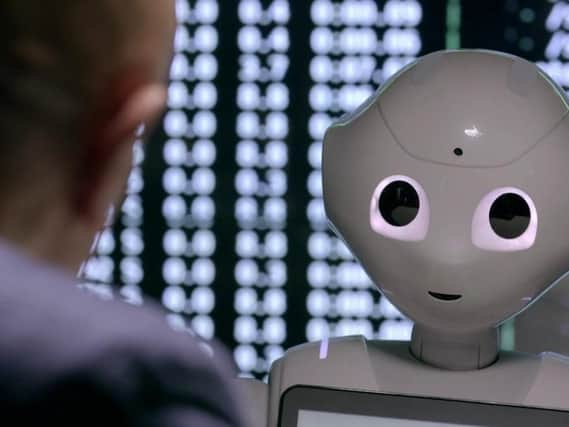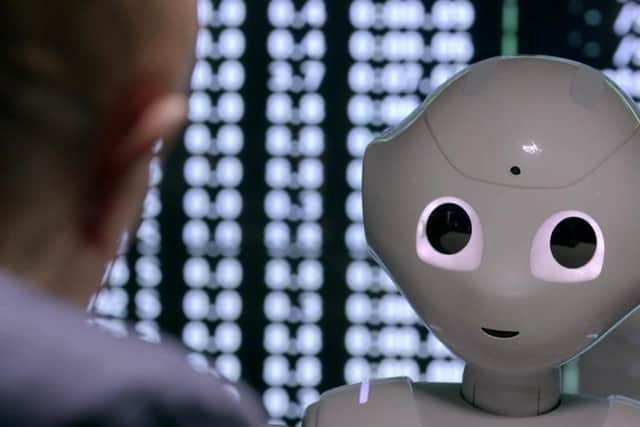Heriot-Watt University developing robot capable of conversation with humans


While research is still needed on AI and robotics to fully understand the advantages they can deliver, for example in freeing people up from repetitive tasks, a lot of the population is already adopting new technologies. Many homes have AI software, such as Amazon Alexa, that understands human commands and questions.
Scientists based at Heriot-Watt University in Edinburgh are leading the way in the development of highly sophisticated AI software that can comprehend and respond to human conversation.
A team at Heriot-Watt University- including Professor Oliver Lemon, Director of the Interaction Lab in its School of Mathematical and Computer Sciences, and Amanda Cercas Curry, a computing science PhD student - has developed a conversational AI software named Alana whose understanding of human language is evolving.


Professor Lemon explained: “Alana is a social, conversational AI. She has lots of different information sources, such as news stories, Wikipedia, fun facts and trivia. She also has a personality, for example, in the sense of having her own favourite music and movies.
“Alana is different from other speech-based systems, such as Alexa and Siri, as she can have long, extended conversations over many turns where the system also builds a model of what the user is interested in. She does sophisticated language understanding and dialogue.”
Alana’s potential is being recognised as she reached the final of this year’s international Amazon Alexa Prize - a $3.5m university challenge to advance human-computer interaction - and took third place to win $50,000. Heriot-Watt was the only UK university to reach the final three having overcome competition from 200 entrants.
Competition
This success reaffirmed Heriot-Watt’s position as a world leader in robotics and AI as this was the second year running that it reached the final of the competition.
As part of the competition, over 18 months, thousands of Amazon Alexa customers in America have conversed with all the ‘socialbots’ that reached the final, including Alana. They gave their feedback based on whether the conversation flowed naturally and if the technology was up to scratch.
On being a finalist in the competition, Ms Cercas Curry said: “It’s a great opportunity to have access to real users. Usually in academia, when you want to run this kind of experiment, you have to ask people to come into a lab to do testing. When you have access to real people in their home choosing to use your system in a way they want to, you can gather a lot more data.”
Looking ahead, Professor Lemon explained there are many different potential uses for Alana, some of which are already being explored. “Applications are endless. Basically, anything you can do now on websites, you could do in a conversational way. That is useful, for example, if your eyes and hands are busy doing something else, from washing up to driving your car, and you can’t use a touch screen.”
The Heriot-Watt team has a list of features they are looking to add to Alana and it is considering forming a spin-out company to commercialise the technology.
In the area of Robotics and Autonomous Systems, Heriot-Watt has also partnered with the University of Edinburgh to deliver the Data-Driven Innovation (DDI) Programme, part of the Edinburgh and South East Scotland City Region Deal, which aims to establish the region as the data capital of Europe – attracting investment, fuelling entrepreneurship and delivering inclusive growth.
This includes the creation of the UK’s first National Robotarium at Heriot-Watt, which will deliver leading-edge research and support for business creation and growth, as well as data skills, new undergraduate and postgraduate programmes, and continuous professional development. Its vision is to create the UK’s first leading innovation hub for the practical application of robotics and autonomous systems that are transforming people’s lives world-wide.
Professor Lemon said: “It is going to have a specific space for research on interaction between robots and humans. It will have a living lab which is like an ultra-modern living space populated with robots and allow us to do research on how they can co-exist with humans.”